2014 | Berlinale Special
Film Discussions at Haus der Berliner Festspiele
Ever since the Haus der Berliner Festspiele became a Berlinale venue, a tradition of post-screening discussions has developed. This enables current hot topics to be explored in greater depth and opens up a space for an exchange with the general public. In 2014 the Berlinale is once again invitied filmmakers, protagonists and experts to participate in public dialogue in the form of panel discussions and Q&As.
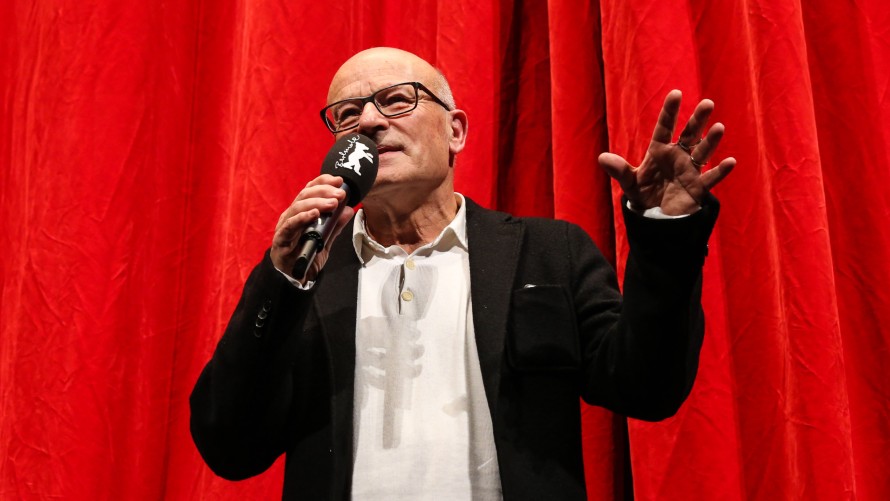
Baal (1969) – Video of the Q&A
We kicked-off with an important piece of (West) German television history which, after 44 years, finally appeared on the big screen. Volker Schlöndorff's film adaptation of "Baal", the stage play written by a young Bertold Brecht, could not be seen for decades after the film's first broadcast in 1970 following an intervention by Brecht's widow Helene Weigel who forbade any further screenings. The heart of her criticism was the performances of the main actor. Playing the poet Baal in Schlöndorff''s production was no lesser figure than Rainer Werner Fassbinder. The cast was formed from the ensemble at the Münchener Antitheater with icons of New German Film like Margarethe von Trotta and Hanna Schygulla playing other roles. Together with Irm Hermann and Klaus Doldinger as well as the director they celebrated a reunion at the Berlinale and were available for questions following the screening.
Film detail page: Baal
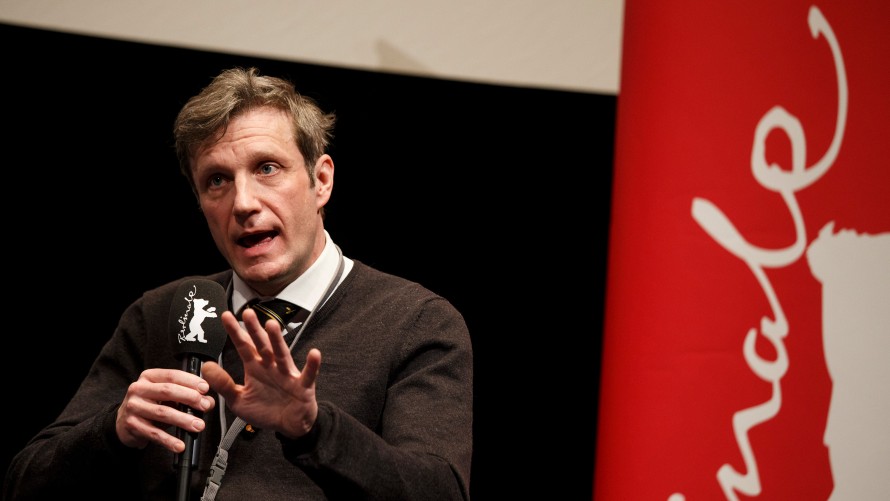
Night will Fall – Video of the panel discussion
15 April 1945: British troops liberate the Bergen-Belsen concentration camp. With them they have cameras to capture footage intended to confront the German people with their complicity. But the politics of the American occupying forces quickly change as Germany is to become an ally in the Cold War. The material disappears into London's Imperial War Museum and just makes sporadic appearances in film history. The planned educational film was only finally completed in 2014. André Singer's documentary Night Will Fall tells the turbulent history of the film German Concentration Camps Factual Survey which received its world premiere in the 2014 Forum.
The film critic Knut Elstermann presented a post-screening discussion of Night Will Fall in conversation with the director André Singer, the historian Professor Rainer Schulze, Producer Sally Angel, the Croatian film producer and actor Branko Lustig, who survived Auschwitz and Bergen-Belsen, as well as Dr. Toby Haggith from the London Imperial War Museum.
Film detail page: Night Will Fall
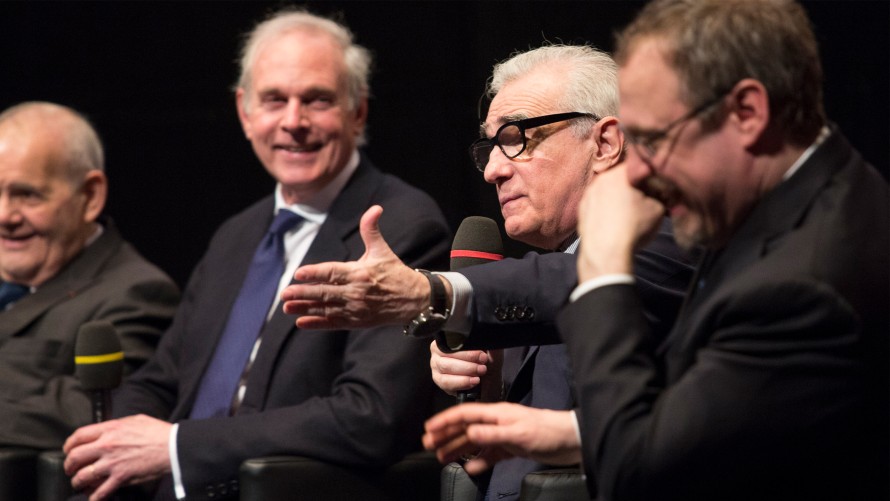
Untitled New York Review of Books Documentary – Video of the panel discussion
In Untitled New York Review of Books Documentary, Oscar-winner Martin Scorsese, himself a subscriber from the start, and David Tedeschi erect a memorial in honour of both one of the most interesting and sophisticated magazines for culture and politics as well as its legendary editor Robert Silvers. The Berlinale is presenting the documentary as a work in progress. Following the screening, Rainer Rother, Artistic Director of the Deutsche Kinemathek and section head of the Restrospective, welcomed both directors as well as Robert Silvers and the publisher of the NYREV Rea Hederman, author and protagonist Michael Grennberg and the producer Margaret Bodde to a discussion.
Film detail page: Untitled New York Review of Books Documentary
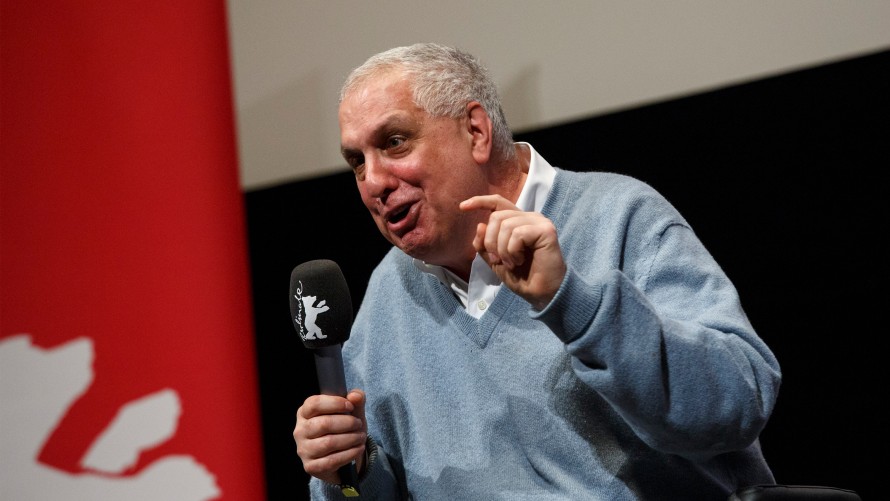
The Unknown Known – Video of the panel discussion
With reference to the weapons of mass destruction which provided the pretext for the 2003 invasion of Iraq and which were never found, he went on record as saying: "We know where they are. They're in the area around Tikrit and Baghdad and east, west, south, and north somewhat." Scarcely any American hardliner has waged the "War on Terror" as vehemently as former Secretary of Defence Donald Rumsfeld. On the basis of more than 10,000 memos which Rumsfeld wrote during his time as advisor to four US presidents, icon of documentary film Errol Morris gets close to this controversial figure of aggressive US foreign policy. Errol Morris already participated in the Berlinale Competition in 2008. Standard Operating Procedure took as its subject matter the scenes of torture in Abu-Ghraib prison which came to light as photographs and for which, as former Secretary of Defence, Rumsfeld had to take ultimate responsibility. Author Peter Schneider presented the post-screening discussion with the director.
Film detail page: The Unknown Known
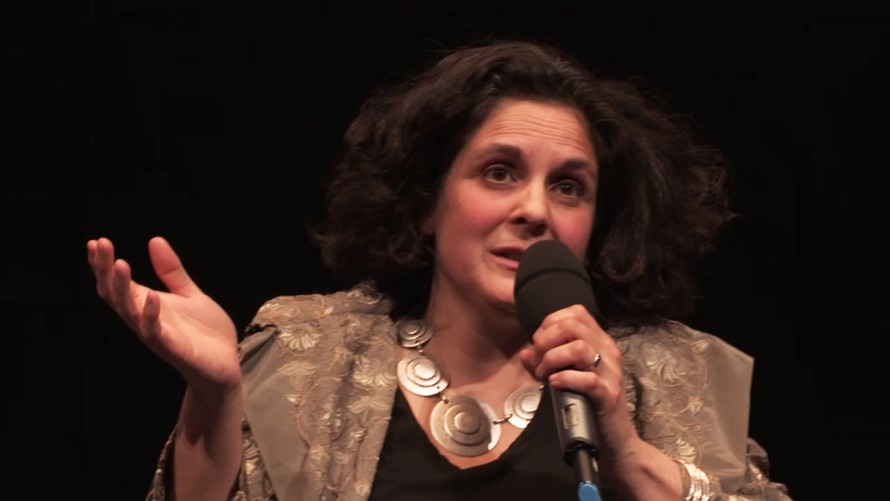
Watermark – Video of the panel discussion
A different take on the current debate and anxiety about the state and future of water: whereas Nước (2030), the Panorama's opening film, depicts a world where climate change is driving people into starvation, Jennifer Baichwal's and Edward Burtynksy's documentary explores above all the aesthetic and spiritual side of this primal element. In a deluge of breathtakingly beautiful images they present a global journey through both natural and manmade water worlds. Radio presenter Stephan Karkowsky led the discussion with producer Nicholas de Pencier as well as Jennifer Baichwal and Edward Burtynsky who, following Manufactured Landscapes, presented their second collaboration as directors with Watermark.
Film detail page: Watermark
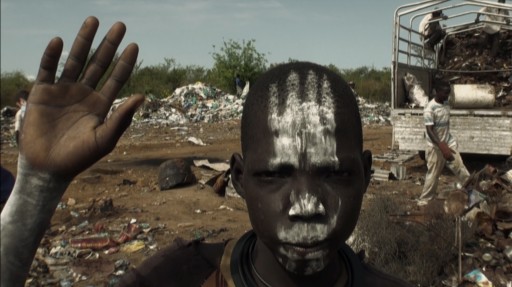
We Come as Friends by Hubert Sauper
We Come as Friends
Wars over natural resources, China's expansion into Africa, ethnic cleansing, mass migration, desertification, climate refugees – in the Sudan cases of disaster and conflict accumulate. Shortly before the country's division in 2011, Hubert Sauper sought to capture an overview of one of the world's most politically complex regions. The director, who provoked heated debate with his Oscar-nominated Darwin's Nightmare, is equally subjective, challenging and provocative in his new work. The post-screening discussion with him and his protagonist Simon Bingo was presented by Berlinale delegate Dorothee Wenner.
Film detail page: We Come as Friends
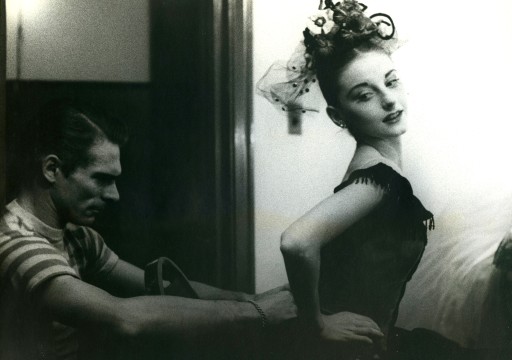
Edward Bigalow, Tanaquil Le Clercq in Afternoon of a Faun: Tanaquil Le Clercq by Nancy Buirski
Afternoon of a Faun: Tanaquil Le Clercq
In her dance Tanaquil Le Clercq effortlessly appears to suspend the law of gravity – in both a tender and expressive manner. In her documentary essay, Nancy Buirski honours this great ballerina from the New York City Ballet and also reveals Le Clercq's relentless battle against spinal polio. The Berlinale welcomed the director as a member of this year's Jury for the Best First Feature Award and invited her to a post-screening Q&A.
Film detail page: Afternoon of a Faun: Tanaquil Le Clercq
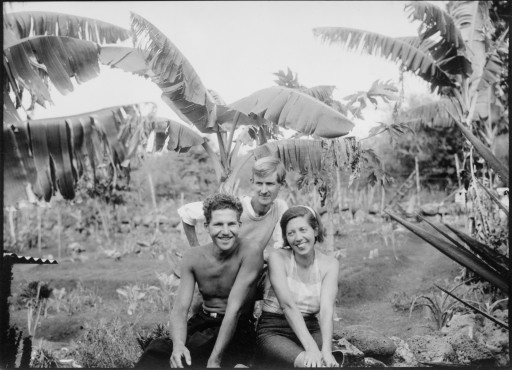
Robert Philippson, Rudolf Lorenz, Baroness von Wagner in The Galapagos Affair: Satan Came to Eden by Dayna Goldfine and Dan Geller
The Galapagos Affair: Satan Came to Eden
It was one of the scandals of 1934, it caused repercussions in the media around the world and ever since it has provided material for continued speculation and new adaptations: the "Galapagos Affair" in which three people died in mysterious circumstances. An idealistic couple, tired of modern day society, who prefer to wander naked through a newly found paradise and pursue vegetarianism; an eccentric fake aristocrat who wants to open a luxury hotel in the middle of nowhere; and an uptight German family - these are the characters for a "true" story which is only known to us from news reports and which sounds like a crime fiction. With the help of original documents, Dayna Goldfine and Dan Geller reconstruct the events of this deadly Robinson Crusoe-like tale and participated in a post-screening Q&A.
Film detail page: The Galapagos Affair: Satan Came to Eden
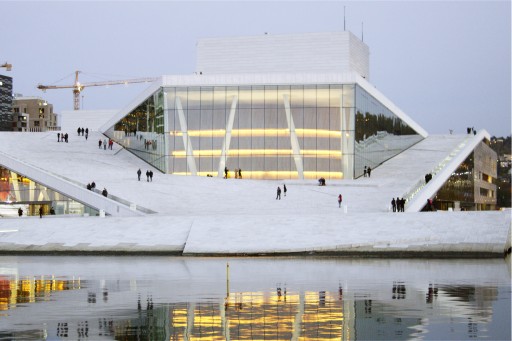
Cathedrals of Culture by Wim Wenders, Michael Glawogger, Michael Madsen, Robert Redford, Margreth Olin, Karim Aïnouz
Cathedrals of Culture - 3D Film Project
In their 3D omnibus film Cathedrals of Culture Wim Wenders, Michael Glawogger, Michael Madsen, Robert Redford, Margreth Olin and Karim Aïnouz each grant one of the buildings in world architecture a voice. The cinematic handwriting of these renowned directors is just as varied as the architectural styles. Following the film's world premiere, some of the directors and cinematographers were available for a Q&A with the audience.
Film detail page: Cathedrals of Culture